Our editors independently select these products. Making a purchase through our links may earn Well+Good a commission
6 probiotics even gut experts take
Doctors and nutritionists reveal the benefits of taking probiotics and reveal the exact brands they themselves take every day.
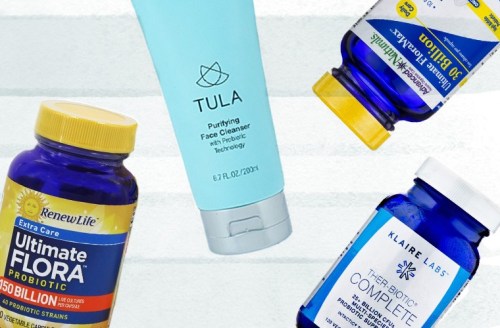
In case you haven’t heard, the microbiome pretty much runs the show when it comes to overall health. Not enough good bacteria in your digestive tract can lead to lots of unpleasantness: depression, feeling run-down, insomnia, and obviously a whole host of gastrointestinal issues.
Ask any gut expert and some might recommend sipping on kombucha while others urge you to load your plate with sauerkraut; the one thing they all seeming agree on? The importance of taking a daily probiotic. One problem: How’s a girl supposed to figure out which one of the seemingly hundreds out there to take?
The truth is, there isn’t one perfect pill for everyone. Some probiotics have specific strains that are particularly effective at fighting allergies, while others are better for improving vaginal health.
So it really comes down to what you want your supplement to do for you—besides keeping your belly happy, of course. That said, aren’t you curious to know what the pros reach for every day?
I asked several of Well+Good’s go-to gut-health experts to reveal exactly which probiotics they rely on—here’s what they said.
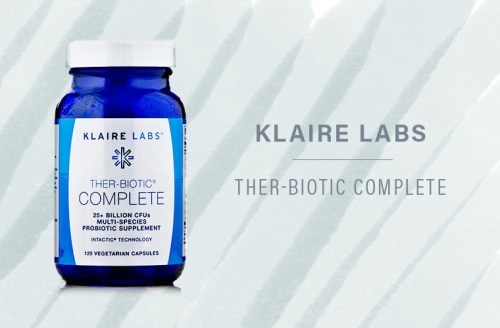
Prudence Hall, MD, founder and medical director of The Hall Center
As a seasoned medical pro, Hall doesn’t pop just any supplement—she looks at the exact strains being used. “Of all the probiotics, I consider Klaire to have reliable, effective flora,” she says. “I’m not alone with this opinion. At specialized [gastrointestinal] conferences, it is widely recognized as a high-quality probiotic, offered at a reasonable price.” Klaire Labs has several different products to choose from, based on various digestive problems, but Dr. Hall goes for the basic Ther-Bioric Complete capsule.
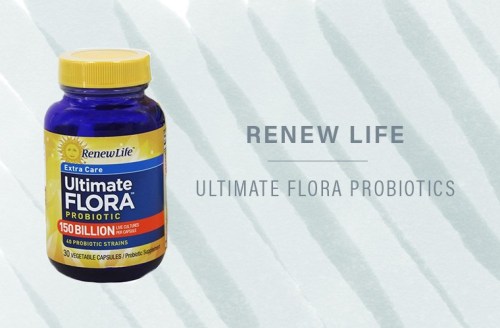
Ellie Krieger, RD, author of You Have It Made, and host of Ellie’s Real Good Food
There are two main things Krieger looks for: strain variety and potency. “I love Renew Life Ultimate Flora Probiotics because it has both,” she says. “A diverse blend is ideal because different bacteria have different benefits and you have a rich array of bacteria already in your gut. You also want potency—you have more than 100 trillion bacteria total in your digestive tract, so when it comes to probiotics I look for a minimum of 15 billion to 30 billion culture count.”
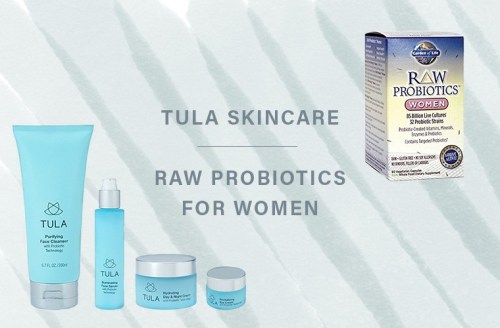
Tracy Lockwood Beckerman, RD, founder of Tracy Lockwood Beckerman Nutrition
The dietician believes that a healthy gut is truly skin deep. “I’m beyond obsessed with my Tula skin-care regimen for an extra boost,” she says. “The whole line screams balance and beauty—it’s become my skin’s new BFF as new medical research shows how powerful probiotics can be for the skin.” (It’s not all that weird when you consider that spraying them in your home is also a thing.)
But she doesn’t stop there. Lockwood also takes Garden of Life’s Raw Probiotics for Women supplement: “It’s made without any fillers or binders, is gluten- and soy-free, and even goes beyond digestion and colon support containing strains specifically designed to meet the needs of women.”
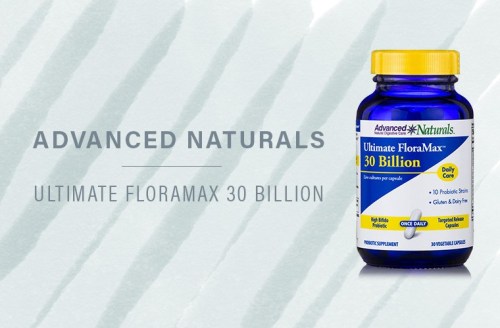
Lauren Slayton, RD, founder of Foodtrainers and author of The Little Book of Thin
If you travel a lot, like dietician Lauren Slayton does, relying on refrigerated supplements gets tricky. That’s why she favors Advanced Naturals’ Ultimate Floramax 30 Billion Probiotic, which is shelf-stable. “Thirty billion, as a dosage, is potent enough to provide ample probiotics but not so high that it’s tough to tolerate,” she says. And, echoing Krieger’s advice, Slayton says it’s all about choosing a product with several different strains of bacteria—just like with diet, variety is key.
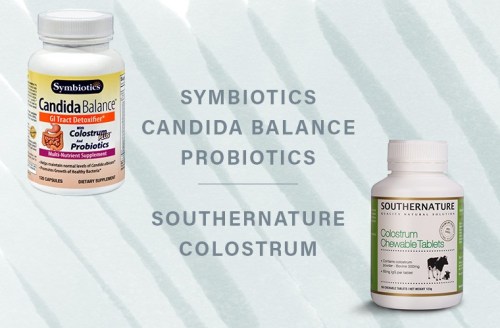
Lee Holmes, certified health coach, yoga teacher, and author of Heal Your Gut
When it comes to dealing with a case of bloat or an upset stomach, health coach Lee Holmes knows exactly what foods can help calm things down (ginger tea FTW), but she also pops not one but two pills daily to keep everything on track: Symbiotics Candida Balance Probiotics and Southernature Colostrum. “Colostrum, a form of milk produced by the mammary glands of mammals—including humans—in late pregnancy, is the garden that helps probiotics grow,” she explains.
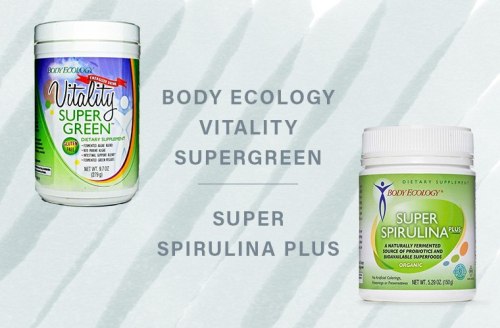
Ashlee Davis, eating coach and Kundalini yoga teacher
Because she works with clients who are dealing with emotional or disordered eating, Davis is well aware that keeping your gut bacteria in healthy balance is key for overall happiness. And with her personal regimen, she likes to mix in a little something extra: algae. “While I’ve tried a variety with success, I love Body Ecology’s Vitality SuperGreen and Super Spirulina Plus,” she says. “They’re both naturally fermented sources of probiotics and bio-available superfoods, which I prefer over supplements in pill form. And there’s so much nutrition—greens, wheatgrass, algae—packed into these powerhouse drinks.”
But her bacteria-boosted sipping doesn’t stop there. “I’m also obsessed with Inner-Eco’s Fresh Coconut Water Probiotic,” she says. “It’s comparable to kombucha, minus the caffeine, made from young green coconuts, and I only need a sip or two a day.” Which, when you think about it, is pretty nuts.
Originally published April 18, 2017. Updated September 25, 2019.
Another common digestive problem: leaky gut. Here’s the lowdown on the ailment. Plus, here are 3 unexpected ways to add fermented foods to every meal.
Sign Up for Our Daily Newsletter
Get all the latest in wellness, trends, food, fitness, beauty, and more delivered right to your inbox.
Got it, you've been added to our email list.










